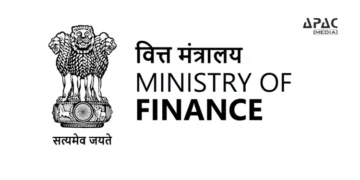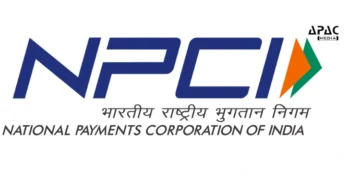New Delhi: The Union government tabled the long-awaited ‘One Nation, One Election’ Bill in the Lok Sabha on 17 December following a division vote – 269 MPs voted for its consideration by Parliament, while 198 opposed it. Since this move has triggered widespread discussion nationwide and is now expected to be sent to a Joint Parliamentary Committee (JPC) for wider consultation, Bhaswati Guha Majumder of CXO News and APAC News Network gathered a broad spectrum of views from legal experts.
Arjun Ram Meghwal, Union Minister of Law and Justice, introduced two bills in Lok Sabha: The Constitution (One Hundred And Twenty-Ninth Amendment) Bill, 2024, to align the terms of Lok Sabha and State Assemblies, and a consequential bill; The Union Territories Laws (Amendment) Bill, 2024, to amend the relevant Acts for Union Territories and the National Capital of Delhi to allow for simultaneous polls.

Key Highlights of “The Constitution (One Hundred and Twenty-Ninth Amendment) Bill, 2024”
- Purpose of the Bill: To amend the Constitution to facilitate simultaneous elections for the Lok Sabha (House of the People) and all State Legislative Assemblies.
- Introduction of Article 82A: The bill proposes to add Article 82A to mandate simultaneous elections. The key provisions include –
- Notification by the President: The President will notify the start of this arrangement after the first sitting of the Lok Sabha post-general elections, designating this as the “appointed date.”
- Unified Tenure Alignment: The term of all State Legislative Assemblies formed after this date will end simultaneously with the term of the Lok Sabha.
- Simultaneous Elections: Elections for both Lok Sabha and Legislative Assemblies will be held together by the Election Commission, with necessary modifications.
- Flexibility for Deferment: If elections for a specific Assembly cannot be synchronized with the Lok Sabha, the Election Commission may recommend deferred elections. However, the Assembly’s tenure will still align with the Lok Sabha’s term.
- Changes to Article 83 (Duration of Lok Sabha):
- Defines the “full term” of the Lok Sabha as five years from the first sitting.
- For early dissolution, a new Lok Sabha will serve only the “unexpired term” of its predecessor, which ensures alignment with simultaneous election timelines.
- Changes to Article 172 (Duration of State Assemblies):
- Similar to the Lok Sabha, the State Assemblies’ “full term” will also be five years from the first sitting.
- Assemblies formed after early dissolution will only serve the “unexpired term” of their predecessor.
- Amendment to Article 327 (Election Laws): Adds provisions for Parliament to legislate specifically for simultaneous elections.
- Objectives and Rationale:
- Historical Context: Simultaneous elections were the norm from 1951 to 1967, but disruptions began due to early Assembly dissolutions.
- Electoral Efficiency: Aims to reduce frequent imposition of the Model Code of Conduct, which disrupts development programs, public services, and governance.
- Cost Savings: Expected to cut down election expenses and the strain on administrative and security forces.
- Implementation:
- The bill requires coordination between the central and state governments, with the Election Commission playing a pivotal role in ensuring adherence.
- Elections for dissolved Assemblies and the Lok Sabha will follow a “mid-term election” model for the unexpired term.
- Committee Recommendations: The bill incorporates suggestions from a High-Level Committee led by former President Ram Nath Kovind, emphasizing feasibility and benefits.
- Transitional Provisions: Upon enactment, the legislation will synchronize the electoral cycles of all Assemblies with the Lok Sabha, streamlining governance and electoral processes nationwide.
विकसित भारत के संकल्प को पूर्ण करने की यात्रा में महत्वपूर्ण व ऐतिहासिक रूप से सुधारवादी कदम ‘एक राष्ट्र-एक चुनाव’ से संबंधित संविधान (129वां) संशोधन विधेयक-2024 और केन्द्रशासित प्रदेश विधि (संशोधन) विधेयक-2024 विधेयक लोकसभा में पेश किया ।#OneNationOneElection #LokSabha… pic.twitter.com/3DsPGVmZao
— Arjun Ram Meghwal (@arjunrammeghwal) December 17, 2024
Advocates Weigh In on Constitutionality and Practicality
Rishabh Gandhi, Founder, Rishabh Gandhi and Advocates, described the 129th Constitutional Amendment Bill as a “pivotal moment in India’s democratic evolution.” He acknowledged its intent to streamline elections and reduce economic and administrative strain but emphasized the critical need to evaluate its implications on federalism, governance, and regional representation. He further commended the decision to refer the Bill to a JPC, describing it as “prudent” for addressing constitutional, logistical, and political challenges.
Gandhi stated: “Synchronizing elections across the Centre and states is an ambitious reform, but achieving it will require more than legislative amendments—it calls for consensus-building, meticulous planning, and a careful balancing of India’s diverse democratic fabric.” He concluded that implementing such a reform would test India’s institutional and political will.
Partha Banerjee, Director & Head Legal, Compliance & Regulatory Affairs, Niva Bupa strongly opposed the Bill, stating that it violates the basic structure of the Constitution, particularly federalism, which he argued would be compromised. He outlined the following key points:
- Federalism, being a core constitutional principle, should not be sacrificed for administrative convenience.
- Cost-effectiveness in elections is not as important as maintaining public faith in democratic processes.
- Elections allow voters to express their opinions on governance periodically; simultaneous elections would limit this opportunity to once every five years.
- The distinct issues of national and state elections would create confusion for voters if combined, making it harder for them to make informed decisions.
Banerjee emphasized, “The cost of conducting Lok Sabha elections is less than 0.2% of our annual budget, and political parties spend many times more than that.”
Meanwhile, Shimpy Arman Sharma, Partner, Anand Sharma & Associates highlighted the introduction of the 129th Constitutional Amendment Bill and the Union Territories Laws Amendment Bill in Lok Sabha, stressing their intent to synchronize elections. She expressed deep concerns, stating that the proposal violates the basic structure of the Constitution by undermining India’s federal system, particularly for smaller states like Goa and Sikkim, which may struggle to retain their regional identities amidst national-level issues.
Sharma also stated that the lack of infrastructure at the grassroots level, especially for the Election Commission, would pose significant challenges in implementing such a large-scale reform. She argued that ONOE could threaten India’s multi-party system, potentially leading to a unitary structure, which is contrary to the federal ethos.
She concluded, saying: “The ideal step should be to consult States before implementing these Bills.”
Ankit Rajgarhia, Principal Associate, Karanjawala & Co. noted the Bill’s aim to align electoral cycles for Lok Sabha and State Assemblies, emphasizing its potential benefits, such as reducing costs and minimizing disruptions caused by frequent elections.
He flagged several constitutional and logistical challenges:
- Amending multiple constitutional provisions, including Articles 83, 85, 172, and 174, to implement simultaneous elections.
- The risk of undermining state autonomy in determining legislative cycles.
- Concerns about extending or prematurely dissolving legislative terms, potentially affecting the democratic principle of periodic elections.
Rajgarhia highlighted the pivotal role of the JPC in addressing these issues. He quoted constitutional scholar Dr. Akshay Gupta, who warned of the potential dilution of federal principles.
Another legal expert, Ishaan Mukherjee, Partner, Meta Law Offices provided historical context to simultaneous elections, pointing out that they were the norm from 1951-1967 until disruptions began with the dismissal of the Kerala government in 1959 under Article 356. He traced various attempts to revive simultaneous elections, including:
- The Election Commission’s 1983 proposal.
- The Law Commission’s 1999 and 2018 reports recommending constitutional amendments and other changes.
- NITI Aayog’s 2017 suggestion highlighting the benefits of reduced “policy paralysis” and costs.
Mukherjee also detailed the constitutional hurdles identified in the 2018 Law Commission report, which recommended amendments to Articles 83, 85, 172, 174, and 356. He noted the challenges posed by no-confidence motions and premature dissolutions.
He concluded with a balanced perspective, outlining both advantages (cost reduction, efficiency, higher voter turnout) and disadvantages (threat to federalism, regional parties’ concerns, and voter behaviour changes).
Meanwhile, Shri Venkatesh, Managing Partner, SKV Law Offices explained the proposed amendments in detail, focusing on the introduction of Article 82A, which empowers the President to fix election dates and defer Assembly polls based on Election Commission recommendations.
He pointed out that the Bill excludes Panchayat and Municipal elections, thereby failing to achieve comprehensive electoral synchronization. Venkatesh also noted that while the Bill aims to reduce economic burdens and ensure policy continuity, its implementation would require careful planning to avoid adverse effects on governance.
He emphasized, “The amendments inter alia contemplate conducting elections for the unexpired/remaining term in case of the dissolution of an assembly before its full term.”
Alay Razvi, Managing Partner at Accord Juris, raised critical concerns regarding the 129th Constitutional Amendment Bill. While he acknowledged that the Bill would significantly reduce election expenses, he highlighted its potential impact on the flexibility of states to dissolve their legislatures based on local political dynamics.
Razvi emphasized that although the amendment aims to bring uniform governance, it raises questions about accountability. He stated, “Local elections ensure that governance is kept under check, but without them, how will accountability be maintained?”
Razvi also pointed to the challenge of synchronizing the existing electoral terms across states, describing it as a complex task. He cautioned that the Joint Parliamentary Committee (JPC) must carefully examine whether this synchronization would create any undue advantage for national parties, potentially compromising transparency and accountability in the democratic process.
Also Read –

































































Discussion about this post